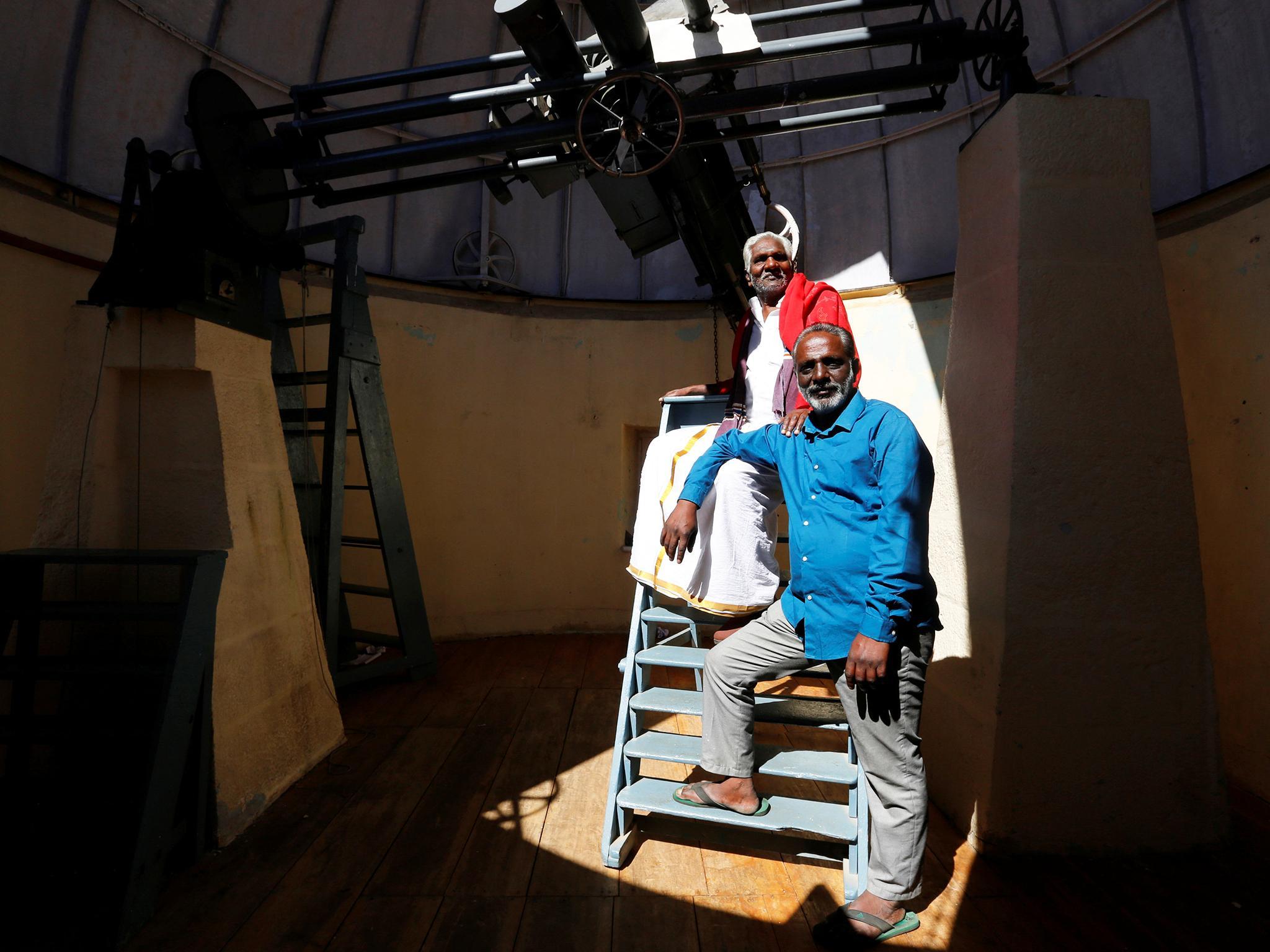Indian sungazers keep up family tradition for four generations
A small observatory – run by the Indian Institute of Astrophysics – plays a key role in providing a continuous stream of data on the sun and its influence on Earth and surrounding space

Your support helps us to tell the story
From reproductive rights to climate change to Big Tech, The Independent is on the ground when the story is developing. Whether it's investigating the financials of Elon Musk's pro-Trump PAC or producing our latest documentary, 'The A Word', which shines a light on the American women fighting for reproductive rights, we know how important it is to parse out the facts from the messaging.
At such a critical moment in US history, we need reporters on the ground. Your donation allows us to keep sending journalists to speak to both sides of the story.
The Independent is trusted by Americans across the entire political spectrum. And unlike many other quality news outlets, we choose not to lock Americans out of our reporting and analysis with paywalls. We believe quality journalism should be available to everyone, paid for by those who can afford it.
Your support makes all the difference.In the early morning darkness, Devendran P walks up a hill to a solar observatory in India's southern hill town of Kodaikanal, trudging the same path his father and grandfather walked in a century-old family tradition of studying the sun.
Once inside, he pulls a rope to open shutters in the dome and positions a six-inch telescope used since 1899 to photograph the sun and preserve a daily record of its activity.
“The sun, like stars, has a lifetime of 10 billion years,” Devendran told Reuters during a recent visit to the observatory in India’s southern state of Tamil Nadu.
“If you want to know about any small changes, you need to have a large amount of data.”
The observatory run by the Indian Institute of Astrophysics has a key role in providing a continuous stream of data on the sun and its influence on Earth and surrounding space, said R Ramesh, a professor at the institute.
“Some of the discoveries made, based on data obtained in the Kodaikanal observatory, are so fundamental to solar physics that they vastly improved techniques used at observatories even today,” Ramesh said.
The Evershed effect of gas motion in sunspots, discovered in 1909 by the then director of the observatory, John Evershed, is one such example, he added.
In the observatory library, shelves stretch to the ceiling, packed with volumes of handwritten records and thousands of film plates of the sun. Authorities have launched a project to digitise and preserve the data collected over the past century.
Devendran's grandfather, Parthasarty, joined the observatory in 1900, a year after it relocated from Madras, the state capital, to Kodaikanal, situated more than 2,000 metres (6,562 feet) above sea level, offering ideal weather to study the sun.
Like his father and grandfather, Devendran has no formal education in astronomy. His interest was piqued during a visit to the observatory when he was a child.
He became a fulltime sunwatcher in 1986 and says the six-inch (15-cm) telescope has never failed his family.
“It has never required any major overhaul, or change of parts, because we all take care of it,” he said.
More than three decades of observation has made him feel close to the sun, despite its distance of more than 149 million kms (93 million miles) from Earth. It’s a feeling enhanced by the devout family's worship of the Hindu sun god Surya, he said.
“I feel more religious than other people, as I can see that there is a universal power which is controlling everything,” he said.
His 23-year-old son, Rajesh, expects to carry on the family tradition, but with one difference. He has a master's degree in physics.
“I get amazed by what my father does here,” said Rajesh. “I think observing the Sun is in my blood.”
Reuters
Join our commenting forum
Join thought-provoking conversations, follow other Independent readers and see their replies
Comments